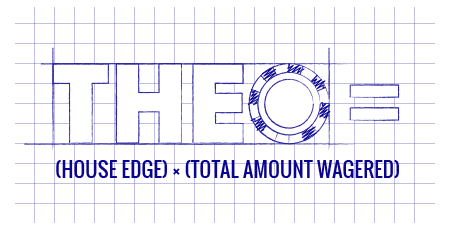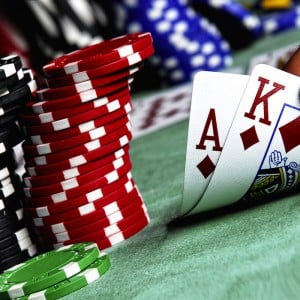Casino Theo
Roulette and slots cost the player more - house advantages of 5.3% for double-zero roulette and 5% to 10% for slots - while the wheel of fortune feeds the casino near 20% of the wagers, and keno is a veritable casino cash cow with average house advantage close to 30%. Executive Casino Host Hi my name is Theo and I was born and raised in Connecticut. I attended University of Nevada, Las Vegas (UNLV) and started my career in the casino business. With almost 10 years of experience in player development in Las Vegas, NV and Blackhawk Colorado, I am now excited to be a part of the Agua Caliente team. Sep 24, 2013 MOST casinos focus on your 'THEO' and you should always know what your ACTUAL theo is, since their records reflect their impressions and estimates about your 'theo'. MOST casinos base comps on your theoretical value (ie, expected losses) and only adjust this figure for massive actual losses and less often for massive actual wins.
Blackjack at .015? 60 hands an hour? Pretty fair?
HOST:
I will use the following theoretical formula:
Theoretical = (Average bet x hours played x hands per hour) x (House Edge / 100)
$750 Ave. X 28 hours X 60 hands X .015 = 18,900 is your theoretical
From that theoretical we consider 35% as your earned comps. 18,900 X .35 = $6,615
This is how we handle comps when using theoretical, we also consider 10% of loss, whatever is higher.
This figures are based on 4 hours of play a day, an average of $ 750 and at the game of Black Jack.
Results vary depending of game, time and average bet.

.015? Huh? What am I missing here?
wondering the same thing
Blackjack - 70 hands/hr at 0.75% (for comps)
http://wizardofodds.com/gambling/house-edge/
MOST casinos focus on your 'THEO' and you should always know what your ACTUAL theo is, since their records reflect their impressions and estimates about your 'theo'.
MOST casinos base comps on your theoretical value (ie, expected losses) and only adjust this figure for massive actual losses and less often for massive actual wins. They focus on what you risked rather than how you actually did. Since your long term value to the casino is what you able and willing to RISK, not your personal variance in the short term. The casino focuses on your long term value to them and protects that value by short term actions to keep you happy.
Casinos will generally sweeten your comps a bit for a massive win so as to make you really want to come back. Most casinos will sweeten comps a bit if you had a very impressive and rapid loss so as to make the rest of your stay relatively pleasant particularly if you have a spouse or spouse equivalent with you who expect fancy restaurants rather than fast food joints. However, actual results have to be really spectacular (either as win or loss) before they will depart from their standard formula.
MOST casinos base comps on your theoretical value (ie, expected losses) and only adjust this figure for massive actual losses and less often for massive actual wins. They focus on what you risked rather than how you actually did. Since your long term value to the casino is what you able and willing to RISK, not your personal variance in the short term. The casino focuses on your long term value to them and protects that value by short term actions to keep you happy.
Although the comps should based on expected loss rather than actual losses - the house does it for different reasons than stated above. If comps are based on actual losses, the house is widely open for systematic exploitation.
Interesting thread, thanks for starting it, mds. 'Theo' is a mystical thing hosts hint at but never discuss directly with clients; at least that's how it is where I go. I have heard the 'four hours of play a day' mentioned many times over the years. That seems to be the gold standard for defining serious customers. That is, I believe the play-time parameter in the formula is regarded as more important that it's mathematical weight when hosts evaluate a customer. I have tried to educate some folks about how they are evaluated. They whine about how much money they have lost, thinking that is the only measure of worth. My standard line is, 'They only care about how much you bet, your luck or lack of it is your problem, not theirs.' That reasoning is seldom believed.
I get that all the time from friends. They lose 3000 in an hour or less and want 3 nights at RFB or RFBI... Just doesn't work that way. Most importantly, to the Casino it's about hours played. As you put in more play time that's when you will lose. You will get comped more but you will lose at the tables. In other words, just pay for your room food and beverage yourself! Why lose 4000 at the tables to get a 200 a night room comped? Short term winners and long term losers. Except if you are an AP. Should be opposite.
Although the comps should based on expected loss rather than actual losses - the house does it for different reasons than stated above. If comps are based on actual losses, the house is widely open for systematic exploitation.
Actual losses if rather whopping or early in one's stay will merely 'sweeten' the comps that are based on a player's theo. The sweetener is modest since in most circumstances only Theo is considered.Time at Table can be three hours but it seems four is simply more impressive by a profound amount and it is rumored that at the Venetian the four hour mark is critical.
- Page 1 of 2
Theoretical win and the standard deviations of expected value have been widely covered in numerous articles. Unfortunately for me, the discussion on the topic has seldom been comprehensive enough to be understood by the layperson (meaning me).
This post attempts to explain the issue in the simplest possible way.
Why is this important?
Theoretical win is derived from the probabilities built into any casino game. As all casino games are designed (in theory) to guarantee a return to the casino, the theoretical win (winnings for the player) is always negative while the expected value, also known as expectation (winnings for the casino) is always positive.
However, like with all probabilities, an element of randomness exists. The standard deviation of theoretical win thus provides a threshold for casino managers to decide if play has passed the limit where it becomes suspect.
Theoretical Win and Expected Value
The average of results is determined by the theoretical win formula. Hence, 50% of all results will achieve this result.
For example:
A split wager on single-zero roulette pays 17:1.
The probability of winning a split bet is 2/37 (2 numbers wagered on from a total of 37 numbers)
The probability of losing the bet is 37-2 / 37 = 35/37 (for all the other numbers not wagered on)
The theoretical win formula is:
(Probability of winning x payout in terms of units of wager) – (Probability of losing x wager)
(2/37 x 17) – (35/37 x 1) = -0.02703
This means that 50% of all play on split wagers in single-zero roulette will (in the long-term) achieve a loss of $0.02703 per dollar wagered by the player.
Standard Deviation
The majority of results will fall within 3 standard deviations from the average.

(Source: http://schools-wikipedia.org/)
In order to obtain the standard deviation, we turn to the binomial distribution, which is a distribution where only 1 of 2 outcomes is possible. In our case, the outcomes being a win or a loss.
Games with only 2 Outcomes
The formula for a binomial standard deviation is:
Square Root (number of games x probability of winning x probability of losing) x average wager x (unit of wager + payout in terms of units of wager)
Using our current split wager example, with an average wager of $2 over 3 games, the formula would be as follows:
Square Root(3 x 2/37 x 35/37) x $2 x (1+17)

Casino Theoretical
=Square Root(3 x 2/37 x 35/37) x $2 x 18
= 0.391659 x $2 x 18
Casino Theoretical Win Calculation
= $14.09972 (standard deviation of theoretical win)
Games with 3 or more Outcomes
How about games with more than 2 possible outcomes, perhaps a win, loss or tie? Baccarat fits this description and for this we turn to the multinomial distribution:
This table describes the possible outcomes for a Player wager. A win on Player would give +1 and a loss on Player would give -1. A tie pays 0.
For a Banker wager, a win would pay 0.95, a loss -1 and a tie, again 0.
Player Wager
| Wager | Probability | Outcome |
| Player | 0.446246609 | 1 |
| Banker | 0.458597423 | -1 |
| Tie | 0.095155968 | 0 |
The expectation of the Player wager is just the product of the probability of each result by the outcome, the sum of which is -0.012350813:
| Wager | Probability | Outcome | Expectation |
| Player | 0.446246609 | 1 | 0.446246609 |
| Banker | 0.458597423 | -1 | -0.458597423 |
| Tie | 0.095155968 | 0 | 0 |
| Total Probability = 1 | Total Exp. | -0.012350813 |
The standard deviation of expectation for this is worked out below.
First, you get the variance for each wager:
| Wager | Probability | Outcome | Expectation | Variance | |
| Player | 0.44625 | 1 | 0.44625 | 0.44625 x (1- -0.01235)^2 = | 0.45734 |
| Banker | 0.45860 | -1 | -0.45860 | 0.45860 x (-1- -0.01235)^2 = | 0.44734 |
| Tie | 0.09516 | 0 | 0.00000 | 0.09516 x (0- -0.01235)^2 = | 0.00001 |
Notice that the working is really:
Probability x (Outcome – Expectation)^2 = Variance
The standard deviation for this is then:
SQRT(Sum of all Variances) = Standard Deviation of Expectation
| SD. Of Exp. | SQRT( 0.45734+ 0.44734+ 0.00001 ) = 0.95115 |
This means that the standard deviation of expectation of a $1 Player wager for 1 coup is $0.95115. For a $5 wager over 10 coups, it would be $0.95115 x $5 x SQRT(10).
The Result
To find out if the win of a player is improbable, we use the Z-table and the following formula:
Win – Average Win (Theoretical Win)
Standard Deviation
Our example will yield the following result should the player have won $15. The player played 3 games with an average wager of $2, so the total wager would be $6.
15 – (-0.02703 x $6)
14.09972

=1.075352
The result is 1.075352, meaning that the result of the player’s gaming is 1.075352 standard deviations from the average. This means that the player’s gaming results are within the top 15% of all results. Cause for some concern.
There you have it. Good luck!